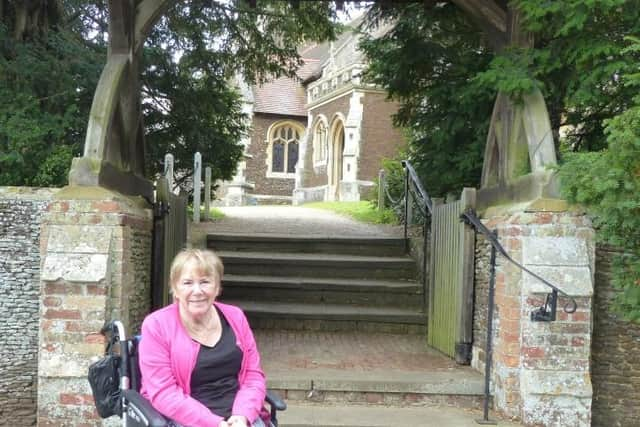New test could lead to earlier detection of brain damage caused by gluten
and live on Freeview channel 276
The TG6 test checks for the presence of the anti-transglutaminase-6 (TG6) antibody in patients presenting with neurological problems thus making a link with gluten sensitivity and coeliac disease as the possible cause of the neurological dysfunction.
This is significant as recent research showed that two-thirds of newly diagnosed coeliac disease patients had evidence of damage or loss in key sensory areas of the brain even though they had no previous diagnosis or history of neurological problems.
Advertisement
Hide AdAdvertisement
Hide AdFurthermore, patients who were found to have the TG6 antibody had notably higher levels of damage in healthy brain cells in specific regions of the brain compared to those without.


The test could help hundreds of patients to get vital, earlier diagnosis and treatment of conditions like gluten ataxia.
This could be critical as symptoms such as clumsiness, inability to walk steadily, and a tendency to stumble can be reversed or prevented if patients diagnosed early with gluten ataxia follow a strict-gluten free diet. Ultimately this could be the difference between living with a permanent disability.
Professor Marios Hadjivassiliou, who is a world-leading authority on gluten-related neurological problems and first defined gluten ataxia in the 1990s, said: “We are delighted to be the first NHS Trust in the country to be offering patients this new diagnostic test which detects the presence of the TG6 antibody in patients with neurological presentations and in patients with newly diagnosed coeliac disease.
Advertisement
Hide AdAdvertisement
Hide Ad“Gluten ataxia is the second commonest cause of ataxia and affects up to 25% of people diagnosed with coeliac disease. There is often a ten-year delay between the diagnosis of coeliac disease, at the age of 43, and the diagnosis of gluten ataxia at the age of 53. The good news is that this test provides clinicians with an early opportunity to detect gluten ataxia. Once identified, a strict gluten-free diet should be advocated.”
Over 600 patients with gluten ataxia have been treated at the specialist Sheffield Ataxia Centre, Royal Hallamshire Hospital.
One of those is Kathy France, aged 75, who was diagnosed with cerebellar ataxia five years ago. Since then the condition, which initially caused her to walk to the left, has progressively got worse and she is now wheelchair bound, unable to stand alone let alone walk. Over the past 12 months, she’s noticed a distinct change for the worse, but she was without hope, until a recent breakthrough diagnostic blood test offered by Sheffield Teaching Hospitals NHS Foundation Trust’s specialist ataxia clinic confirmed the link between her ataxia and gluten sensitivity, and given her a way forward.
This test can be the only marker of gluten sensitivity (as was the case in Kathy) and it is only available in Sheffield.
Advertisement
Hide AdAdvertisement
Hide AdKathy, who has written all over the world to find a solution, is due to start on a gluten-free diet following a referral to a dietitian.
“I can’t tell you how excited I am to see it in writing that the blood test showed that gluten sensitivity is the problem.
"To see the professor and to finally have a way forward is a privilege, and hopefully in six to 12 months I shall be feeling better and halt the progress of the disease.
"This diagnosis means the world to me.”
In these confusing and worrying times, local journalism is more vital than ever. Thanks to everyone who helps us ask the questions that matter by taking out a subscription or buying a paper. We stand together. Nancy Fielder, editor.
Comment Guidelines
National World encourages reader discussion on our stories. User feedback, insights and back-and-forth exchanges add a rich layer of context to reporting. Please review our Community Guidelines before commenting.